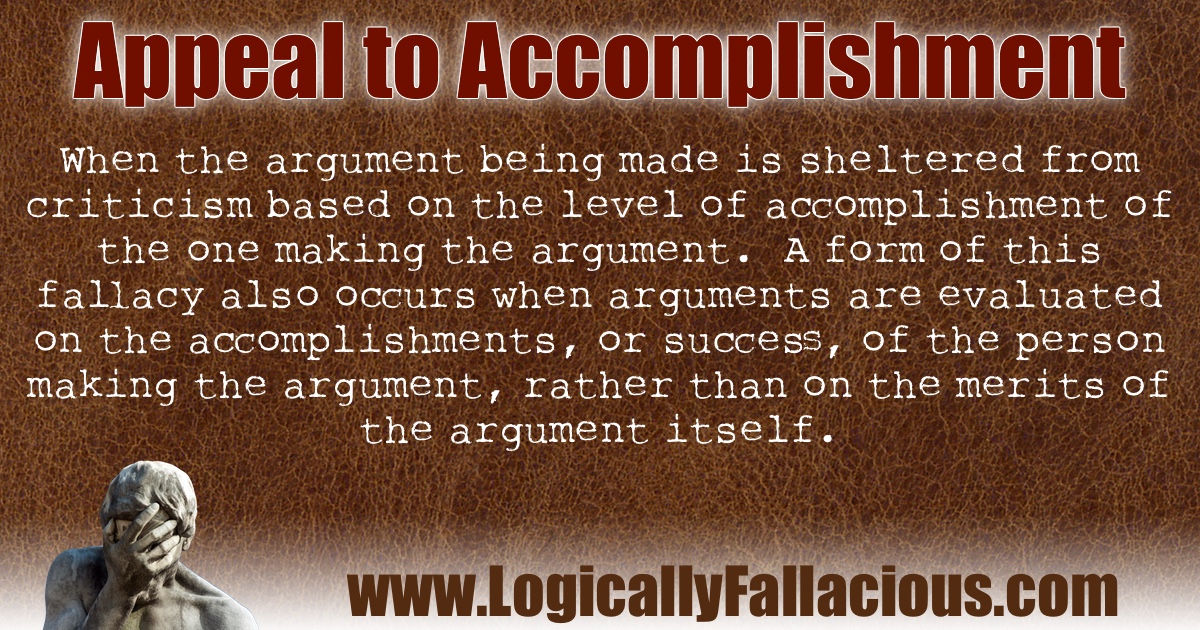(also known as: appeal to success)
Description: When the argument being made is sheltered from criticism based on the level of accomplishment of the one making the argument. A form of this fallacy also occurs when arguments are evaluated on the accomplishments, or success, of the person making the argument, rather than on the merits of the argument itself.
Logical Forms:
Person 1 claims that Y is true.
Person 1 is very accomplished.
Therefore, Y is true.
Person 1 presents evidence against claim Y.
Person 1 is told to shut up until person 1 becomes as accomplished as person 2.
Example #1:
I have been around the block many times, and I have had my share of success. So believe me when I tell you that there is no better hobby than cat-juggling.
Explanation: We can all admire accomplishment and success, but this is irrelevant to cat-juggling. There are many accomplished and successful people who are immoral, mean, insensitive, hateful, liars, miserable, and just plain wrong about a great many things.
Example #2:
I hold a doctorate in theology, have written 12 books, and personally met the Pope. Therefore, when I say that Jesus’ favorite snack was raisins dipped in wine, you should believe me.
Explanation: While the credentials of the one making the statement are certainly impressive, in no way do these credentials lend credibility to the belief that Jesus’ favorite snack was wine-dipped raisins.
Exception: When one’s accomplishments are directly related to the argument, it is more meaningful.
I have been around the block many times, and I have had my share of success in real estate. So believe me when I tell you that, if you know what you are doing, real estate can be a great way to make a great living.
Tip: Many successful people attempt to use their success as a wildcard to be an authority on everything. Don’t allow one’s own success to cloud your judgment of the claims they are making. Evaluate the evidence above all else.

This a logical fallacy frequently used on the Internet. No academic sources could be found.